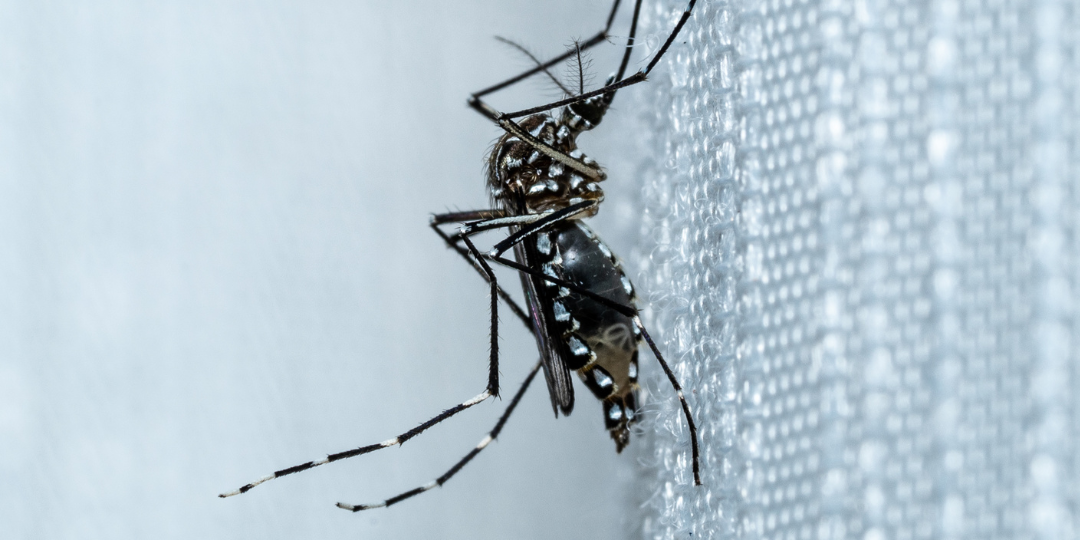Learning more about pests is one of the greatest methods to properly deal with them. In the case of mosquitoes, knowing a mosquito’s flight speed, its rate of reproduction, and the appearance of mosquito larva can help you devise strategies to successfully avoid these buzzing, blood-sucking parasites from disrupting your outdoor pleasure.
How Fast Can a Mosquito Fly?
Sometimes it seems hard to swat away a mosquito. They frequently appear one second and disappear the next. So how quickly do mosquitoes fly? It might surprise you to find that mosquitoes are not particularly fast insects. At roughly 1.5 miles per hour, they fly. They move more slowly than bees and flies, among other flying insects. Unfortunately, they continue to move quickly enough to make batting at them a frustrating activity.
How Quickly Do Mosquitoes Flap Their Wings?
Mosquitoes have quite impressive wings, even if you might not realize it while swatting and slapping at them. Up to 800 times per second, mosquitoes may flap their wings. Why then aren’t they faster if they flap their wings so quickly?
That lightning-fast flapping is mostly used for communication rather than propulsion. According to a research by Johns Hopkins University, male mosquitoes fly with a low-frequency sound, whereas female mosquitoes fly with a high-frequency sound. Their antennae, which detect sound vibrations, let them locate one another in this way. Many mosquito eggs are eventually produced as a result of the connection. It all has a connection, from how quickly mosquito wings flap to how they interact and reproduce.
Mosquito Larvae: How Fast Do Mosquitoes Multiply?
You must understand the life cycle of mosquitoes if you want to get rid of them. How quickly do mosquitoes reproduce? The answer is: it Depends.
The whole mosquito life cycle, from eggs to adult mosquitoes, is shown here:
- EGGS: All during their adult lives, female mosquitoes deposit hundreds of eggs every few days. The eggs are laid in or next to water. The eggs must be near water in order to hatch. During dry or cold seasons, mosquito eggs can lay inactive and develop when the conditions are appropriate. In around 48 hours, mosquito eggs will hatch if there is adequate water and a warm temperature.
- MOSQUITO LARVAE: The mosquito larvae are currently swimming around while feeding, developing, and molting. Because of the way they move, mosquito larvae in water are sometimes referred to as “wigglers” or “rollers.”
- PUPAE: Mosquito larvae pupate after molting four times. They’re difficult to eliminate at this stage since they don’t feed and hide when the water is disturbed. This stage typically lasts four days but might vary depending on water temperature.
- ADULT: The mosquito has grown and matured into an adult mosquito after the pupal stage. It floats to the surface of the water and, when ready, flies away to restart the cycle.
What Does Mosquito Larvae Look Like?
Knowing how to recognize mosquito larvae might help you manage mosquitoes in your yard. So, how do mosquito larvae look? They resemble little 14-inch hairy worms squiggling in the water where they hatched. They will frequently be at the water’s top and will dive deeper if the water is disturbed.
This is one of the simplest phases of mosquito development to manage. You can terminate the life cycle of mosquitoes before they reach adulthood if you remove the water they need to thrive.
How to Get Rid of Mosquito Larvae
There are various methods for killing mosquito larvae that you might attempt, including:
- Removing or emptying locations where water can accumulate Pet bowls, bird baths, children’s toys, watering cans, and swimming pools are all examples.
- Clear out your gutters. Water can gather in clogged gutters. It’s a great mosquito hatching environment because they’re rarely disturbed.
- Overgrown plants should be pruned or chopped down. Overgrown plants can produce a shaded, moist habitat in which mosquito eggs can develop.
- Using mosquito dunks in ponds or other bodies of water. These contain Bt, which kills mosquito larvae who consume it.
For a solution that can protect every part of your yard, consider Mosquitonix’s mosquito misting system and other treatments. Contact us today!







